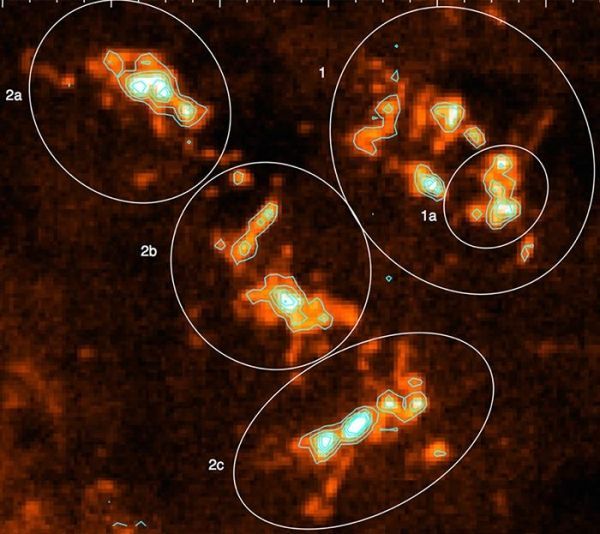Astronomers from the United States and South Korea have made the first high-resolution, radio telescope observations of the molecular clouds within a massive star-forming region of the outer Milky Way.
“This region is behind a nearby cloud of dust and gas,” said Charles Kerton, an associate professor of physics and astronomy at Iowa State University and a member of the study team. “The cloud blocks the light and so we have to use infrared or radio observations to study it.”
The Milky Way region is called CTB 102. It’s about 14,000 light years from Earth. It’s classified as an HII region, meaning it contains clouds of ionized – charged – hydrogen atoms. And, because of its distance from Earth and the dust and gas in between, it has been difficult to study.
And so, “this region has been very poorly mapped out,” Kerton said.
Read more at Iowa State University
Image: This image from a radio telescope shows a huge star-forming region of the outer Milky Way galaxy. The ovals identify the main subdivisions of the region's molecular cloud, including the smaller 1a, which is very efficient at producing stars. (Credit: Image courtesy of Charles Kerton/Iowa State University)


